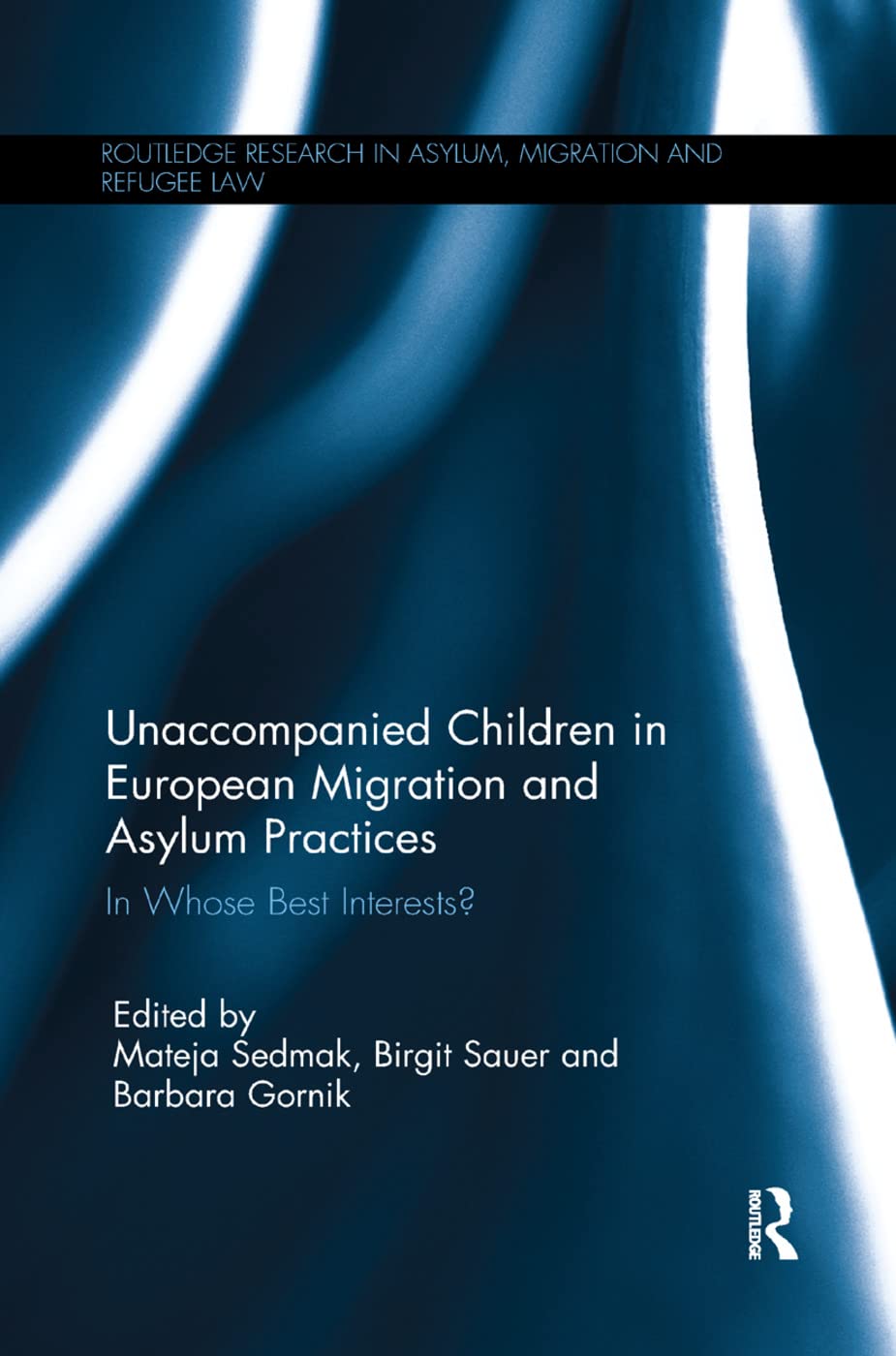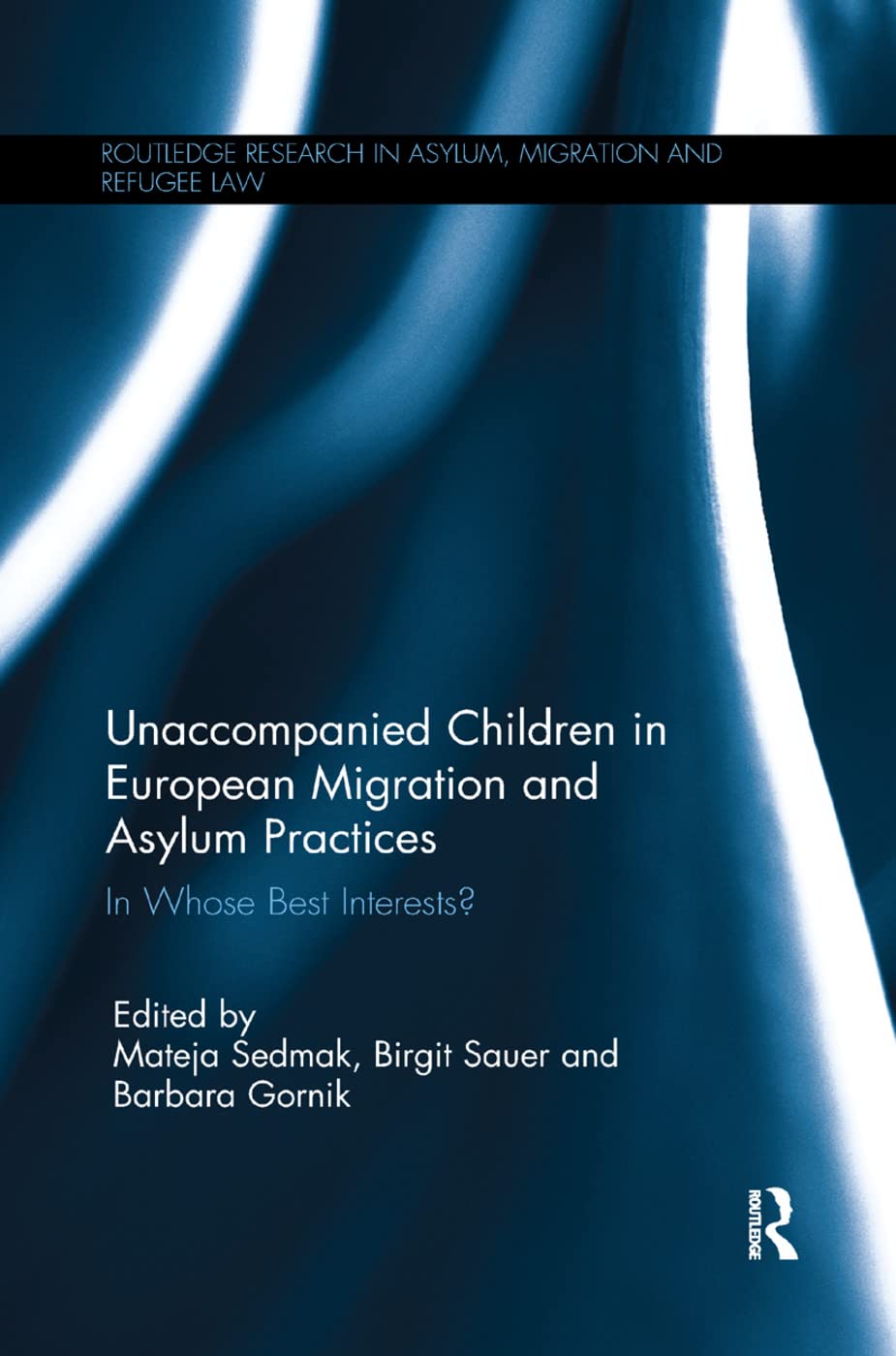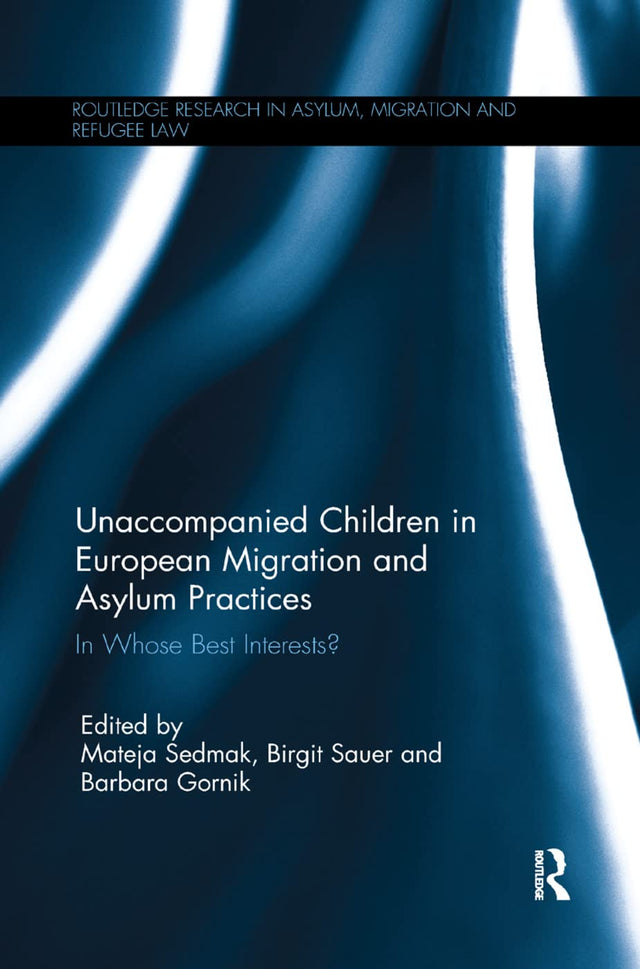Unaccompanied Children in European Migration and Asylum Practices: In Whose Best Interests?
Unaccompanied Children in European Migration and Asylum Practices: In Whose Best Interests? is backordered and will ship as soon as it is back in stock.
Couldn't load pickup availability
Genuine Products Guarantee
Genuine Products Guarantee
We guarantee 100% genuine products, and if proven otherwise, we will compensate you with 10 times the product's cost.
Delivery and Shipping
Delivery and Shipping
Products are generally ready for dispatch within 1 day and typically reach you in 3 to 5 days.
Book Details:
-
Book Title: Unaccompanied Minor Migrants: Children’s Rights and the Best Interests Principle
-
Author: Mateja Sedmak
-
Publisher: Routledge
-
Language: English
-
Edition: Illustrated Edition
-
ISBN: 9780367267001
-
Pages: 200
-
Cover: Paperback
-
Dimensions: 9.1 x 6.1 x 0.6 inches
About the Book:
Unaccompanied Minor Migrants: Children’s Rights and the Best Interests Principle by Mateja Sedmak provides an in-depth exploration of the rights and challenges faced by unaccompanied minor migrants in Europe. These minors, who are separated from their parents or guardians for various reasons, often find themselves navigating complex legal and social systems in foreign countries. This book critically examines the concept of the "best interests of the child," which is a guiding principle in international law, and explores how it applies specifically to unaccompanied minors.
Sedmak combines social, legal, and political science perspectives to understand children’s rights not merely as positive law but as a dynamic social practice influenced by personal experiences, community histories, and power structures. The first part of the book focuses on theoretical aspects of children’s rights and the best interests principle, offering a critical perspective on the implementation of the United Nations Convention on the Rights of the Child (CRC). The author examines how power dynamics shape the interpretation and application of these rights, with those in authority making decisions for children who lack the power to voice their needs.
In the second part, the book delves into the actual legal frameworks in place to protect the rights of unaccompanied minor migrants in Europe, specifically in countries like Austria, France, Slovenia, and the United Kingdom. Drawing from empirical research and interviews with key experts and unaccompanied minors themselves, it highlights discrepancies between legal obligations and the lack of formal procedures for determining the best interests of the child in practice. The book also exposes the failures of institutional systems in addressing the needs and rights of these vulnerable children, with a particular focus on asylum, protection, and return procedures.
This book is an essential resource for scholars, policymakers, and practitioners working in the fields of children’s rights, migration, and asylum law, as it critically engages with the challenges surrounding the protection of unaccompanied minors and their fundamental rights.





